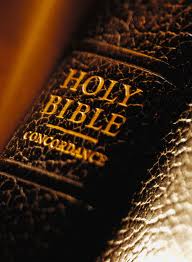Exposing the Most Common Myths about Christmas
on Friday, December 25, 2015Exposing the Most Common Myths about Christmas
By Scott Rohter, December 2015
Here are two of the most common myths about Christmas exposed. They illustrate the enormous power of peer pressure, tradition, and social conditioning on our lives.
Was Jesus born on December 25th?
Was Jesus born on December 25th? In all probability he was not. The odds that Jesus was born on December 25th are about 365 to 1. There is no Biblical evidence that Jesus was born on December 25th. The Bible doesn’t say when Jesus was born. The important thing to know is that He WAS born, not WHEN He was born. There is no one alive today who knows either the exact date or the time of his birth.
So why do we in the West celebrate the birth of the Lord on December 25th if there is no evidence that Jesus was actually born on December 25th? That is a good question… The answer is that the overwhelming influence the Roman Catholic Church on western civilization has made it so. The Catholic Church established December 25th, just a few days after the Winter Solstice occurs on December 21st as the day to celebrate Christ’s birth. December 21st is the shortest day of the year, and it was just a few days later when ancient people first began to notice that the days were actually getting longer again, and that was a cause for a celebration. To the early Catholic Church December 25th seemed like a logical day to remember that God brought light back into the world in the person of his son, Jesus Christ. It is a day that symbolizes both the return of Spring, and the hope of new life as well as the promise of eternal life through Jesus Christ.
There was another important reason that the Catholic Church decided to make December 25th the day to celebrate Christ’s birth. The pre-Christian world observed a popular pagan festival called Saturnalia to mark the Winter Solstice. The roots of Saturnalia date back even farther in time to the ancient Persian cult of Mithraism. The early Catholic Church being eager to find converts co-opted this pagan festival and merged it with a holiday of their own making at approximately the same time.. They thought it would make their attempts to proselytize the heathen a lot easier. Unfortunately their efforts have proved to be a mixed blessing…
There is an old saying that only the names and the faces keep changing, while everything else remains the same. Instead of pagans becoming more Christianized… the Catholic and Protestant Churches keep getting more and more paganized over the years… That’s what happens when you mix the truth with lies. Everything gets confused. The Bible says, “What fellowship hath light with darkness?” While the early Church fathers may have had nothing but good intentions, their decision to celebrate Jesus’ birth at the same time as the Saturnalia has had rather mixed results. Some of them have actually been quite bad for the Church.
So why do we keep perpetuating this myth that Jesus was born on Christmas Day? This is a tough question to answer and it gives us a good glimpse into our own souls. It has a lot to do with our stubborn desire to cling to social and cultural customs we are familiar with and the tremendous power of peer pressure. That is why we insist on following false doctrines. The Bible says that “God brought light into the world but the people preferred to walk in darkness.”
The fact that we still listen to songs about reindeer pulling sleighs through the snow long after we have moved to Southern California, or about Santa Claus riding in a heavenly sleigh in the sky while being tracked by NORAD are good examples of just how long after the relevance of something has ceased to exist that we as a society can’t seem to rid ourselves of these irrelevant vestiges of our cultural heritage which no longer have any real meaning in our lives.
Is Christmas a Time for Us to Give Gifts to Each Other?
Is the celebration of the Savior’s birth an occasion for us to exchange gifts with each another? While there is certainly nothing wrong with giving gifts to each other on Christmas Day it is actually a secular diversion, and there is no reason to associate this custom of exchanging gifts with the birth of Jesus. The wise men gave gifts to Jesus, not to each other. The custom of giving gifts to each other during the month of December is also associated with the gift giving that occurred in December during the pre-Christian observance of Saturnalia.
The birth of Jesus should be a time to remember that God’s gift to us is eternal life through the shed blood of his Son on the cross, and that no gift of our own is able to redeem our souls nor to make atonement for our sins. The celebration of Jesus’ birth is a day to remember that nothing we can do or provide to ourselves or each other can ever redeem our souls from the power of sin and death.
There are many symbols that we are all familiar with which make their presence felt around this time of the year. All of them are cultural in nature rather than spiritual or religious and they generally have nothing at all to do with the birth of Jesus Christ. They include Christmas trees, holly, wreaths, yule logs, and mistletoe.
Some of the annual Christmas customs we are all acquainted with include decorating the Christmas tree, decking the halls, hanging stockings over the fireplace, stringing lights along the eaves of our houses, the annual watching of IT’S A WONDERFUL LIFE on television, the traditional Christmas Day baked ham, and the making of gingerbread cookies.
Is there anything wrong with celebrating Christmas? Well, that depends on you, and it is a question that every individual decides for themselves… As long as we honor Jesus in our hearts and minds I don’t personally see anything wrong with it. God wants us to know the truth, and the truth shall make us free.. If you learn the truth and you lift up the name of Jesus Christ then God can use anything for good, even a confusing day like Christmas.


